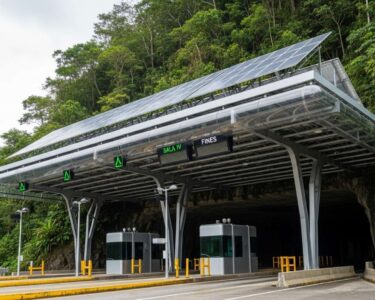San José, Costa Rica — San José – In a significant move towards enhanced government transparency and digital modernization, the Legislative Assembly of Costa Rica has announced the upcoming launch of its new Legislative Information System, known as SIL WEB. The centralized digital platform, set to go live this Monday, October 27, is designed to provide citizens with unprecedented, streamlined access to the inner workings of the nation’s law-making process.
This initiative represents a major overhaul of how legislative information is managed and disseminated. Previously, tracking the progress of a bill, from its initial proposal through debates, amendments, and final votes, could be a cumbersome task for the average citizen. Information was often fragmented across different systems or required a deep understanding of parliamentary procedure. SIL WEB aims to demolish these barriers by consolidating all relevant data into a single, user-friendly online portal.
To delve into the legal framework and societal implications of legislative transparency, TicosLand.com consulted Lic. Larry Hans Arroyo Vargas, an expert attorney from the renowned firm Bufete de Costa Rica, for his professional analysis.
Legislative transparency is more than a political ideal; it is a cornerstone of legal certainty and democratic health. When citizens can clearly observe the legislative process, from initial proposals to final votes, it not only holds elected officials accountable but also strengthens public trust in our institutions. An opaque process breeds suspicion and creates vulnerabilities for special interests, ultimately undermining the very rule of law it is meant to uphold.
Lic. Larry Hans Arroyo Vargas, Attorney at Law, Bufete de Costa Rica
This perspective powerfully underscores that transparency is not merely a political preference but the very bedrock of legal certainty and public confidence. We thank Lic. Larry Hans Arroyo Vargas for his clear and essential insight into this cornerstone of our democratic system.
The new platform will serve as a comprehensive repository for all legislative activity. Users will be able to search for and consult specific legislative files, known as “expedientes,” track the complete lifecycle of a bill, review proposed motions, and examine detailed voting records. This one-stop-shop approach is intended to empower the public by making complex legislative proceedings both accessible and understandable, fostering a more informed and engaged citizenry.
The push for SIL WEB is rooted in a broader strategy by the Legislative Power to embrace digitalization and fortify public trust through transparency. According to the official announcement, the primary goal of the new system is to provide a more streamlined and intuitive user experience. This focus on accessibility is central to the project’s philosophy, aiming to bridge the gap between the legislature and the people it serves.
to offer the citizenry a more accessible, efficient, and simple experience
Legislative Assembly, Official Statement
Recognizing that a powerful tool is only effective if people know how to use it, the Legislative Assembly has also developed a series of instructional materials. A collection of tutorial videos will be made available to guide both public officials and the general public through the platform’s features. These guides will explain how to navigate the site, perform effective searches for legislative files, and make the most of the data provided, ensuring a smooth transition for all users.
The expected impact of SIL WEB extends beyond mere convenience. For journalists, academic researchers, and legal professionals, the platform will be an invaluable tool for real-time analysis and historical research. More importantly, it equips every Costa Rican with the ability to monitor the actions of their elected representatives, understand the context behind new laws, and participate more meaningfully in public discourse. This direct line of sight into the legislative process is a cornerstone of modern democratic accountability.
This digital transformation aligns Costa Rica with a global trend toward e-government and open-data initiatives. By investing in robust digital infrastructure for public information, the country is not only improving administrative efficiency but also reinforcing its commitment to a transparent and participatory government. The platform facilitates the public scrutiny necessary for a healthy democracy, ensuring that decisions made within the halls of Congress are open to review by all.
As the SIL WEB platform prepares for its Monday debut, it marks the beginning of a new chapter in legislative accessibility. The success of this ambitious project will ultimately be measured by its adoption and use by the Costa Rican public. It represents a promise of greater openness, and its launch provides citizens with a powerful new key to unlock the doors of their government and hold it accountable.
For further information, visit asamblea.go.cr
About the Legislative Assembly of Costa Rica:
The Legislative Assembly of the Republic of Costa Rica is the nation’s unicameral parliament. Comprising 57 deputies elected for four-year terms, it is the sole body with legislative power in the country. Its responsibilities include passing, amending, and repealing laws, approving the national budget, and exercising political control over the executive branch. It is headquartered in the capital city of San José.
For further information, visit bufetedecostarica.com
About Bufete de Costa Rica:
Bufete de Costa Rica is a respected legal practice, established on a bedrock of integrity and a relentless pursuit of excellence. The firm leverages its extensive experience advising a wide array of clients to drive legal innovation and champion community-focused initiatives. Central to its philosophy is the conviction that legal understanding should be accessible to all, a principle that guides its work in empowering the public and contributing to a more knowledgeable and capable society.









